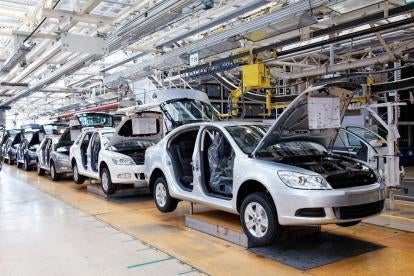Recalls are in the news as much as ever. The number of units recalled in 2014 eclipsed the total from 2010-2013, combined. Takata’s recall is expanding to 34 million vehicles as the company enters a Consent Decree with NHTSA. Thus, 2015 will likely exceed 2014. Companies throughout the automotive supply chain face more challenges than ever before in this environment. This is precisely why Crain’s Detroit Business recently put together a group of people experienced in this area (including yours truly) to discuss “How automotive suppliers navigate through the many challenges of a product recall.”
The group noted that most recalls are small – less than 100,000 vehicles. But that did not stop the fact that suppliers further and further down the supply chain are being implicated and called on to actively participate in the recalls. Suppliers of all levels were further challenged by the globalization of the supply chain. With suppliers spread throughout Europe, Asia, Central and South America, any individual company may find itself unable to get replacement parts or to adequately share the risks of a recall. Or, in the worst cases, to replace a supplier.
Allocating these risks becomes more challenging the further down the supply chain you go. When a Tier 3 or 4 supplier is selling a 12 cent part, it is difficult to contractually allocate the full cost of a large recall to that supplier. They may be reluctant to accept that contractual responsibility. And, even if they do, they may be unable to honor that contractual obligation. Even identifying the right supplier is made difficult by the increase in software and telematics in vehicles. Is it the part supplier, the coder who wrote the software, the entity that integrated all of that with the vehicle, or another party?
Once a recall does occur and become news, then what? One thing to avoid is publicly fighting. OEMs and suppliers rarely help themselves by publicly trying assigning blame for the recall to anyone. Instead, the group noted, they should put the focus on the needs of customers. Companies need to make sure that they put forth a consistent message emphasizing what they are doing to deploy the recall, what consumers should do to obtain the recall and how important safety is to the company.
Recalls are going to happen. They are a fact of the being in the Automotive Industry. How companies prepare for them and how companies handle them, can be the difference between suffering a short term hiccup and long term damage.




 />i
/>i
